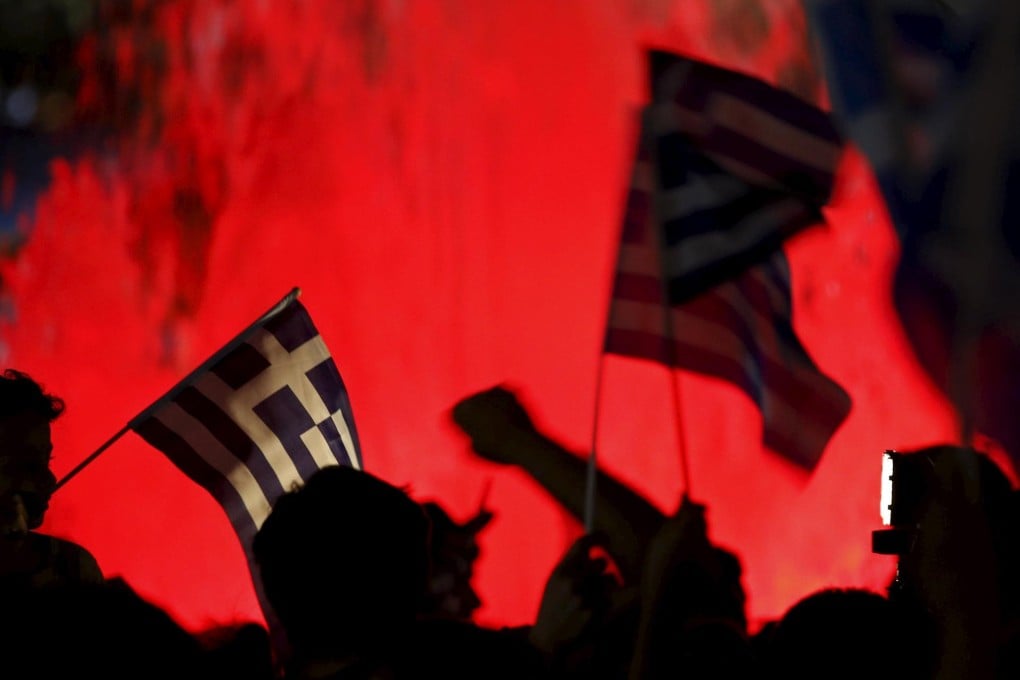More misery and turmoil loom for Greece
Barry Wood says with a majority 'no' vote for further austerity, it's unclear where the cash to run the country will come from, raising the possibility of a temporary euro-zone exit, at least

As Greeks voted on Sunday, the cover of the German financial daily Handelsblatt depicted Prime Minister Alexis Tsipras holding a gun to his head beneath the caption: "Give me the money or I'll shoot!"
His defiance was endorsed by Greeks, who voted "no" to the bailout programme on offer from the International Monetary Fund, European Union governments and the European Central Bank. But although Tsipras' anti-austerity government survives, he will not quickly obtain the cash and debt relief his country so desperately needs.
Now comes the test of the assertion of combative Yannis Varoufakis, who resigned yesterday as finance minister. He said the cost of kicking Greece out of the euro zone is so high that it simply won't happen. Before the referendum, Varoufakis likened the creditors to terrorists because they insisted that the central bank stick to its rules, limiting financial support to cash-depleted Greek banks. It's unclear when the closed banks will reopen.
Varoufakis said if creditors really wanted an agreement, one could be had within 24 hours. That implies that the creditors would acquiesce to the Greek position, a highly unlikely prospect.
Does the no vote mean that Greece will exit the euro currency? Not necessarily and not quickly. Several European leaders characterised the referendum as a vote on keeping the euro or reverting to the drachma, a view rejected by the government.
So what happens now? No one knows. Surely there will be meetings between the Greeks and their EU partners, but cash is unlikely to flow, and Greece remains cut off from financial markets. It is also blocked from multilateral lending since it owes the IMF, the financial rescue agency.
Six months ago, Tsipras' radical Syriza party took over, promising to undo the austerity that creditors demanded in exchange for US$250 billion of loans.